Filter by
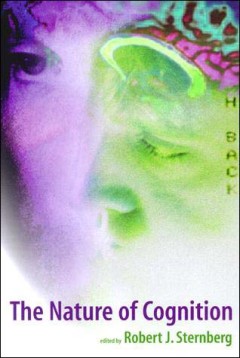
The nature of cognition
"A Bradford book."OCLC-licensed vendor bibliographic record.
- Edition
- -
- ISBN/ISSN
- 9780262284363
- Collation
- 1 online resource (x, 736 pages) :illustrations
- Series Title
- -
- Call Number
- -
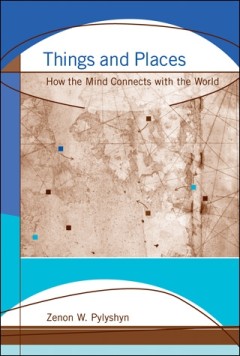
Things and places :
Problems in linking representation and perceived things in the world are discussed in light of the role played by a preconceptual indexing mechanism that functions to identify, reidentify, and track objects.
- Edition
- -
- ISBN/ISSN
- -
- Collation
- 1 online resource (xiv, 255 pages) : illustrations.
- Series Title
- -
- Call Number
- -
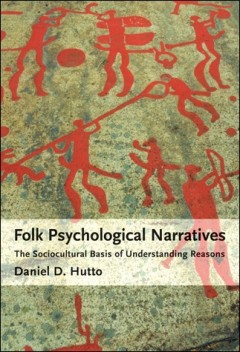
Folk psychological narratives The Sociocultural Basis of Understanding Reasons
An argument that challenges the dominant "theory theory" and simulation theory approaches to folk psychology by claiming that our everyday understanding of intentional actions done for reasons is acquired by exposure to and engaging in specific kinds of n.
- Edition
- -
- ISBN/ISSN
- -
- Collation
- 1 online resource (xvii, 402 pages)
- Series Title
- -
- Call Number
- -
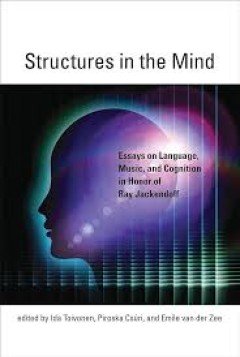
Structures in the Mind: Essays on Language, Music, and Cognition in Honor of …
The introduction includes appreciations of Ray Jackendoff by various authors.OCLC-licensed vendor bibliographic record.
- Edition
- -
- ISBN/ISSN
- 9780262331791
- Collation
- 1 online resource (xxxiv, 404 pages) :illustrations
- Series Title
- -
- Call Number
- -
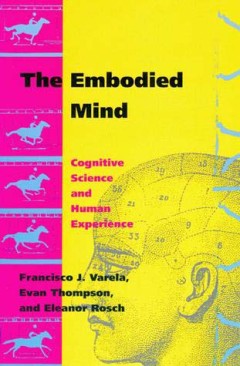
The Embodied Mind : Cognitive Science and Human Experience
A new edition of a classic work that originated the "embodied cognition" movement and was one of the first to link science and Buddhist practices.OCLC-licensed vendor bibliographic record.
- Edition
- 2nd ed.
- ISBN/ISSN
- 9780262285476
- Collation
- 1 online resource (390 pages)
- Series Title
- -
- Call Number
- -
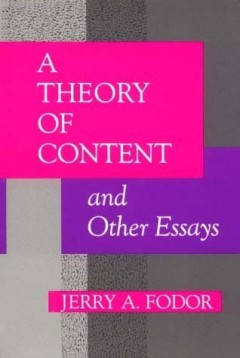
A Theory of Content and Other Essays
A Bradford book."OCLC-licensed vendor bibliographic record.
- Edition
- -
- ISBN/ISSN
- 9780262287999
- Collation
- 1 online resource (xii, 270 pages)
- Series Title
- -
- Call Number
- -
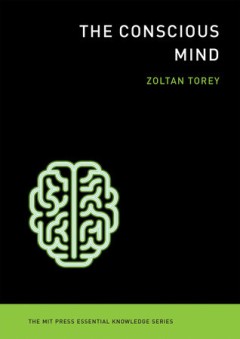
The conscious mind
An account of the emergence of the mind: how the brain acquired self-awareness, functional autonomy, the ability to think, and the power of speech."How did the human mind emerge from the collection of neurons that makes up the brain? How did the brain acquire self-awareness, functional autonomy, language, and the ability to think, to understand itself and the world? In this volume in the Essent…
- Edition
- -
- ISBN/ISSN
- 9780262319300
- Collation
- 1 online resource (xii, 191 pages).
- Series Title
- -
- Call Number
- -

Cognition in the wild
Edwin Hutchins combines his background as an anthropologist and an open-ocean racing sailor and navigator in this account of how anthropological methods can be combined with cognitive theory to produce a new reading of cognitive science. His theoretical insights are grounded in an extended analysis of ship navigation - its computational basis, its historical roots, its social organization, and …
- Edition
- -
- ISBN/ISSN
- 9780262275972
- Collation
- 1 online resource (xviii, 381 pages) :illustrations
- Series Title
- -
- Call Number
- -
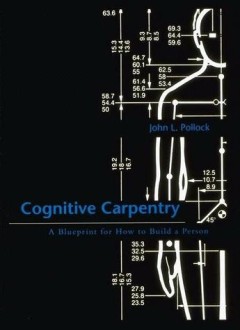
Cognitive Carpentry: A Blueprint for How to Build a Person
A sequel to Pollock's How to Build a Person, this volume builds upon that theoretical groundwork for the implementation of rationality through artificial intelligence. Pollock argues that progress in AI has stalled because of its creators' reliance upon unformulated intuitions about rationality. Instead, he bases the OSCAR architecture upon an explicit philosophical theory of rationality, encom…
- Edition
- -
- ISBN/ISSN
- 9780262281751
- Collation
- 1 online resource (xiii, 377 pages) :illustrations
- Series Title
- -
- Call Number
- -
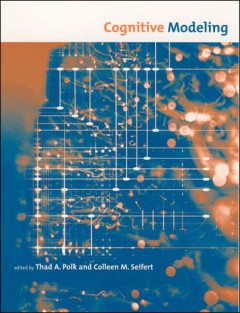
Cognitive Modeling
Computational modeling plays a central role in cognitive science. This book provides a comprehensive introduction to computational models of human cognition. It covers major approaches and architectures, both neural network and symbolic; major theoretical issues; and specific computational models of a variety of cognitive processes, ranging from low-level (e.g., attention and memory) to higher-…
- Edition
- -
- ISBN/ISSN
- 9780262281744
- Collation
- 1 online resource (xxi, 1270 pages) :illustrations.
- Series Title
- -
- Call Number
- -
 Computer Science, Information & General Works
Computer Science, Information & General Works  Philosophy & Psychology
Philosophy & Psychology  Religion
Religion  Social Sciences
Social Sciences  Language
Language  Pure Science
Pure Science  Applied Sciences
Applied Sciences  Art & Recreation
Art & Recreation  Literature
Literature  History & Geography
History & Geography